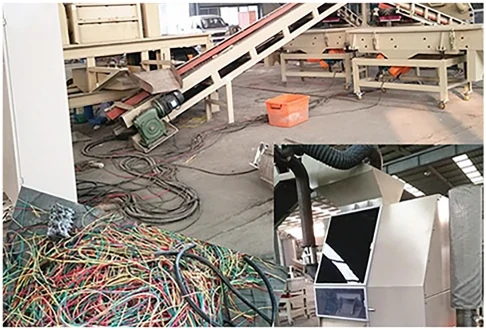

ធ្នូ . 24, 2024 20:01 Back to list
How to Dispose of Circuit Boards Responsibly
Circuit boards are a crucial component of modern electronics, found in everything from smartphones and computers to microwaves and other household appliances. However, the disposal of circuit boards poses a significant environmental challenge due to their composition and the materials used in their manufacture. Proper disposal is not only a legal obligation in many jurisdictions but also a vital step in ensuring environmental sustainability. In this article, we will explore the best practices for disposing of circuit boards responsibly.
Understanding Circuit Boards
A circuit board, often called a printed circuit board (PCB), consists of a non-conductive substrate coated with conductive pathways. These boards can contain various materials, including metals like copper, gold, and silver, as well as plastics and other synthetic compounds. Many of these materials can be hazardous; for instance, some circuit boards may contain lead, mercury, or brominated flame retardants, all of which can be harmful to human health and the environment if not handled properly.
Why Proper Disposal Matters
Improper disposal of circuit boards can lead to serious environmental repercussions. When these materials end up in landfills, they can leach toxic chemicals into the soil and groundwater, posing risks to local ecosystems and human health. Additionally, burning circuit boards can release harmful gases into the atmosphere. Therefore, managing the disposal of circuit boards is crucial for reducing electronic waste (e-waste) and its associated environmental impacts.
Steps for Responsible Circuit Board Disposal
1. Check Local Regulations Before disposing of circuit boards, it is essential to understand local and national regulations related to e-waste disposal. Many countries have specific laws governing the disposal of electronic waste, including circuit boards. Familiarizing yourself with these regulations ensures compliance and helps avoid legal issues.

2. Recycling Options The best method for disposing of circuit boards is recycling. Many recycling facilities specialize in e-waste and can safely process circuit boards. Recycling helps recover valuable materials, reducing the need for mining and resource extraction. Look for certified e-waste recycling facilities in your area that can handle circuit boards.
3. Donation If the circuit board is still functional or has components that can be reused, consider donating it to local schools, community centers, or tech organizations. Many educational institutions look for electronic components for training purposes. Reusing equipment can extend its lifecycle and reduce the amount of e-waste produced.
4. Manufacturer Take-Back Programs Some electronics manufacturers have take-back programs where they accept old devices, including circuit boards, for recycling. Check with the manufacturer of your device to see if such a program exists. Participating in these initiatives not only helps the environment but may also ensure safe handling of hazardous materials.
5. Avoid Landfills Never dispose of circuit boards in regular household trash, as they belong to the e-waste category that requires special handling. Instead, make the effort to get them to a recycling facility or participate in take-back programs.
6. Educate Others Share knowledge about the importance of proper circuit board disposal within your community. Raising awareness can lead to better practices in managing e-waste and encourage others to recycle their electronics responsibly.
Conclusion
As technology continues to advance, the amount of electronic waste, including circuit boards, is only expected to increase. It is crucial for consumers, businesses, and governments alike to take responsible actions in managing e-waste. By understanding the importance of proper circuit board disposal and taking the necessary steps to recycle, donate, or utilize take-back programs, we can reduce the environmental footprint associated with electronics and contribute to a more sustainable future. Remember, every small action counts in the effort to protect our planet.
Latest news
Eddy Separator for Non-Ferrous Metals
NewsAug.22,2025
E Waste Bin for Collected Spray Cans: Sustainable Disposal Solutions
NewsAug.22,2025
Dual Shaft Shredder with Adjustable Blade Gaps
NewsAug.22,2025
Hammer Crusher Machine With Secondary Crushing
NewsAug.22,2025
Copper Granulator Our Promise of Recycling Excellence
NewsAug.22,2025
Industrial Shredders Crafted for E-Waste Recycling
NewsAug.22,2025